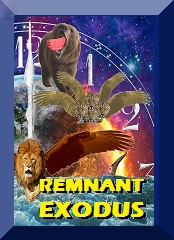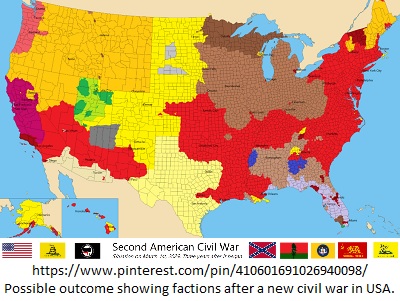|
|
|||||||
~ Pass this newsletter on to a friend! ~ |
Every Sabbath | ||||||
 | |||||||
 | |||||||
Keep Tsiyon Road | |||||||
|
Join us online tonight! | |||||||
| |||||||
|
**************************************** From Eliyahu Consider this:
It might surprise some people that the founders of America were worried about the problem of factions before the Constitution was ever ratified. The best surviving example of this is probably The Federalist Papers. These are a collection of 85 articles and essays written by Alexander Hamilton, James Madison, and John Jay under the pseudonym "Publius", promoting the ratification of the United States Constitution. Historian Richard B. Morris says The Federalist Papers are an "incomparable exposition of the Constitution, a classic in political science unsurpassed in both breadth and depth by the product of any later American writer." [Richard B. Morris, The Forging of the Union: 1781–1789 (1987) p. 309] Early in The Federalist Papers one could get the impression that factions were not a concern to the founding fathers. For example, in Federalist No. 2, John Jay counted as a blessing that America possessed "one united people—a people descended from the same ancestors, the same language, professing the same religion". However, as we progress through these essays we come to see that, despite the high degree of unity praised by John Jay, the problem of factions was very much on the minds of the framers. [Federalist No. 2. pp. 7–8 of the Dawson edition at Wikisource.]
Since the problem of factions is unavoidable, how does a country (or other body) deal with it? Madison proposed there are only two means to limit the damage caused by faction: either remove the causes of faction or control its effects. He breaks down the first means, removing the causes of faction, to only two possibilities: first, destroying liberty, saying "liberty is to faction what air is to fire". Indeed, totalitarian states use oppression to crush any faction that could oppose them. Religious groups sometimes do the same. However, Madison counts this as an unthinkable choice, since liberty is the whole point of the new republic. The second possibility he suggests is creating a society homogeneous in opinions and interests. He arrives at the conclusion that this is unrealistic and counter-productive. Here Madison is left with "control its effects." This can be done, only by a republic with the proper safeguards built in, in Madison's view. Not all agreed that such a large and powerful republic as Madison argued for would be able to deal with the issue of faction. The Anti-Federalists felt such a large republic to be unworkable over time, so far as dealing with factions is concerned. The Anti-Federalist position is succinctly stated in the article, Cato no. 3:
Moral of the story: It is not possible for human government of any kind to curb the fractious nature of man. The story of the decline of America we are now witnessing is the story of every great empire throughout history, divided and destroyed from within. Not only that, but the Church has had nothing but the same, with constant divisions, even now arising daily. Historic Israel has been plagued with the same, painfully chronicled in the pages of Sacred Writ. The world is incorrigible, and totally unable to curb the fractious nature of man. Some think a world government is the answer? As the Anti-Federalists rightly pointed out, bigger government is not better, so far as the issue of factions is concerned - at least if the goal is to maintain liberty. The only way such a massive government as global government could maintain order in a world divided by so many different interests would be to establish the greatest tyranny the world has ever seen. This, of course, is what the Bible foretells WILL happen - next. There is one answer to all of this, and one answer alone. The Kingdom of Yeshua Messiah. This brings me to this week's Tsiyon Academy study in Acts 6+7. Here we continue to observe the amazing growth of the early Messianic Assembly. For the first time we encounter a break from perfect unity among them, with a danger of faction raising its ugly head. How will we attain unity in Remnant Israel? Look to this study for a lesson from the Emissaries that will definitely put us on the right track! Join us for our live meeting to be aired tonight, at tsiyon.net, at 8 pm cst. Holy Order is the answer to unholy chaos. Blessings and good health to you!
Eliyahu P.S. - This morning I was feeling disturbed about troubles in the world - then I watched Emily! You should too!
| |||||||
|
You can tune in to Tsiyon Road from around the world by using one of the
free apps on you mobile device from
| |||||||
| |||||||
©2020 Tsiyon - Tsiyon A130-425, 5701 W Slaughter LN, Austin, TX, USA, 78749 You may leave feedback, prayer requests and comments here. Please donate online here. | |||||||




 The
United States is divided by many factions, and this is seen by many as a
growing threat to the union of the country. In fact, maps showing the
division of the country after a new civil war are becoming frighteningly
common these days. For example, the map to the right, shows how the
country might be divided up by the hypothetical civil war according to
various factions. Factions are always a problem for every country and
group.
The
United States is divided by many factions, and this is seen by many as a
growing threat to the union of the country. In fact, maps showing the
division of the country after a new civil war are becoming frighteningly
common these days. For example, the map to the right, shows how the
country might be divided up by the hypothetical civil war according to
various factions. Factions are always a problem for every country and
group. Federalist
No. 10 is an essay written by James Madison as the tenth of The
Federalist Papers, and is considered, possibly the best of The
Federalist Papers, and ranks among the most highly regarded of all
American political writings. Here Madison points out and deals with the
problem of factions. Madison defines a faction as "a number of citizens,
whether amounting to a minority or majority of the whole, who are united
and actuated by some common impulse of passion, or of interest, adverse
to the rights of other citizens, or to the permanent and aggregate
interests of the community". Madison saw the forming of factions as an
undesirable, but inevitable, reality. He states, "The latent causes of
faction are thus sown in the nature of man." The Bible agrees with that,
if we assume the fallen nature of man, since factions are listed
among the works of the flesh. (Galatians 5:20)
Federalist
No. 10 is an essay written by James Madison as the tenth of The
Federalist Papers, and is considered, possibly the best of The
Federalist Papers, and ranks among the most highly regarded of all
American political writings. Here Madison points out and deals with the
problem of factions. Madison defines a faction as "a number of citizens,
whether amounting to a minority or majority of the whole, who are united
and actuated by some common impulse of passion, or of interest, adverse
to the rights of other citizens, or to the permanent and aggregate
interests of the community". Madison saw the forming of factions as an
undesirable, but inevitable, reality. He states, "The latent causes of
faction are thus sown in the nature of man." The Bible agrees with that,
if we assume the fallen nature of man, since factions are listed
among the works of the flesh. (Galatians 5:20) Indeed,
despite the good and well thought-out intentions of James Madison and
the other founding fathers, it looks more everyday like the
Anti-Federalists were right, that even the great republic of America
could not control the progressive decay of factions. The very
considerable efforts to mitigate the destructive effects of factions by
unique provisions of the Constitution, though brilliant, today go
largely unknown, and mostly unappreciated - and certainly ignored. James
Madison and the other founding fathers would, no doubt, be discouraged
and appalled to see the fractious state of America today, to the great
determent of all involved. They knew popular democracy always leads to
factions, chaos and eventual disaster, whenever it is tried. The reason?
It is mob rule, in which the good of the country as a whole is lost, as
a myriad of special interests all compete for a bigger share of
everybody else's money and liberties. The framers settled on a new kind
of republic as the way to go, designed to put America first, while
taking the interests of states and individuals into account through
representative government and, failing that, the courts. Now, that has
all collapsed into mob rule anyway, as the very foundations of the
country are being shaken to rubble by the stirring up of factions.
Indeed,
despite the good and well thought-out intentions of James Madison and
the other founding fathers, it looks more everyday like the
Anti-Federalists were right, that even the great republic of America
could not control the progressive decay of factions. The very
considerable efforts to mitigate the destructive effects of factions by
unique provisions of the Constitution, though brilliant, today go
largely unknown, and mostly unappreciated - and certainly ignored. James
Madison and the other founding fathers would, no doubt, be discouraged
and appalled to see the fractious state of America today, to the great
determent of all involved. They knew popular democracy always leads to
factions, chaos and eventual disaster, whenever it is tried. The reason?
It is mob rule, in which the good of the country as a whole is lost, as
a myriad of special interests all compete for a bigger share of
everybody else's money and liberties. The framers settled on a new kind
of republic as the way to go, designed to put America first, while
taking the interests of states and individuals into account through
representative government and, failing that, the courts. Now, that has
all collapsed into mob rule anyway, as the very foundations of the
country are being shaken to rubble by the stirring up of factions.